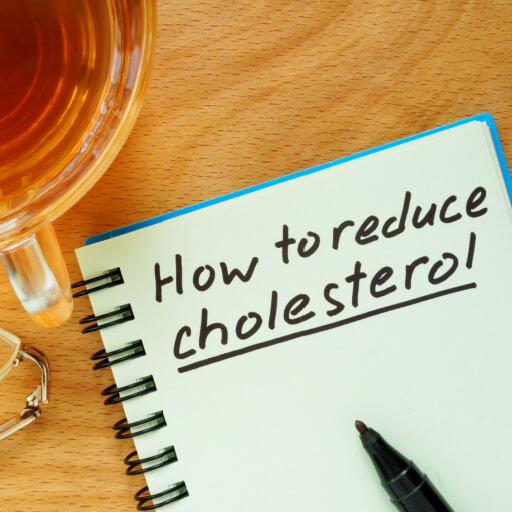Have you found yourself getting frustrated with erratic diets posing countless restrictions? The Mediterranean diet is miles away from this concept and is a rather delicious choice with exciting flavors to explore.
What you need to know:
- What is the Mediterranean diet?
- Potential benefits of a Mediterranean diet plan
- Why is the Mediterranean diet good for me?
- 10 foods to eat on a Mediterranean diet
- How can you follow a Mediterranean diet plan?

What is the Mediterranean diet?
The Mediterranean diet is built around the conventional meals people consumed in France, Spain, Greece, Italy and other nations bordering the Mediterranean Sea. Mediterranean dieters strongly emphasize a plant-based diet full of vegetables and good fats like olive oil and omega-3 fatty acids from fish. It is taken to be a heart-healthy diet.
Potential benefits of a Mediterranean diet plan
Due to its high produce intake, the Mediterranean diet is renowned for its potential health benefits. A standard Mediterranean diet calls for three to nine servings of vegetables and up to two servings of fruit daily.
Those who include these fresh, whole foods in their diets have a lower risk of disease because of the disease-fighting antioxidants. Some benefits of the Mediterranean diet are:
Promotes heart health
This eating strategy is most well-known for its impact on heart health. It reduces cholesterol levels, which lowers the risk of heart-related ailments and decreases fatality from cardiovascular diseases.
Supports healthy blood sugar levels
The Mediterranean diet supports a wide range of nutrient-dense foods, such as fruits, vegetables, nuts, seeds, whole grains, and heart-healthy fats. Maintaining this dietary pattern may help control blood sugar levels and stave off type 2 diabetes.
Protects brain function
A Mediterranean diet plan may prevent cognitive decline. The meals’ unsaturated fats reduce inflammation, enhance brain health, and encourage healthy cholesterol levels.
Why is the Mediterranean diet good for me?
In addition to the above health benefits, the Mediterranean diet is also an excellent choice for:
- Limiting sodium in the diet helps reduce the risk of high blood pressure;
- Limiting refined carbs in the diet and promoting high fiber intake;
- Uplifting mental health by consuming raw vegetables and fruits; and
- The diet’s anti-inflammatory properties help prevent bone fractures and other osteoarthritis complications.
10 foods to eat on a Mediterranean diet
The following items will make up a large portion of your diet, while processed foods must be limited:
- Olive Oil: It is a suitable replacement for foods with saturated fats like butter. The plant sources enrich the body with monosaturated fats.
- Salmon: A major source of omega-3, it is a good choice for heart health.
- Tomatoes: The fruit is rich in lycopene, an effective antioxidant associated with reducing the risk of cancers in the breast and prostate. Tomatoes may also reduce blood clots, protecting the body against cardiovascular disease.
- Pomegranate: This fruit’s vibrant bright red color conceals potent polyphenols that fight inflammation and free radicals.
- Chickpeas: The major component of hummus is rich in fiber, which promotes weight loss and digestive health. They are also a healthy source of iron, zinc, folate, and magnesium.

- Lentils: When used to replace starchy food like rice, lentils can help lower the body’s blood glucose content.
- Vinegar: Vinegar is another essential item in the Mediterranean pantry due to the presence of polyphenols that can help balance out many dishes.
- Poultry: Poultry is a lean protein source, making options like chicken a staple on many Mediterranean menus.
- Walnuts: Nuts impact the gut microbe and help improve digestive health. Walnuts are also associated with lower LDL (or bad) cholesterol.
- Greek Yogurt: Even though dairy is consumed in moderation, these foods are a fantastic source of calcium. By selecting low or non-fat options, you can reduce the amount of saturated fat consumed.
How can you follow a Mediterranean diet plan?
Getting started with a Mediterranean diet plan can differ from person to person. However, it is flexible for people in terms of vegetarian, non-vegetarian, and gluten-free options. To follow a Mediterranean diet, you must keep three things in mind:
- Foods to eat: This diet must include vegetables, fruits, nuts, seeds, legumes, potatoes, whole grains, herbs, spices, fish, and extra virgin olive oil.
- Foods to avoid: Red meat, refined oils, added sugars, processed meat, sugar-sweetened beverages, refined cereals, and other highly processed foods are a big no-no.
- Foods to consume in moderation: Poultry, yogurt, cheese, and eggs are best had in moderation.
Ready to get started? The best thing about the wholesome Mediterranean diet is that it works for you how you like it. The plant-based and relatively lower animal-based meals give your health the ultimate boost it needs.
Stay tuned to the Activ Living Community. Keep up to date with the latest health tips and trends through expert videos, podcasts, articles, and much more in nutrition, fitness, mindfulness, and lifestyle conditions like Asthma, Blood Pressure, Cholesterol, and Diabetes.
You may also like to read blogs on:
- How does DASH diet help lower blood pressure?
- You are what you eat. Choose a healthy balanced diet today





 1800-270-7000
1800-270-7000








